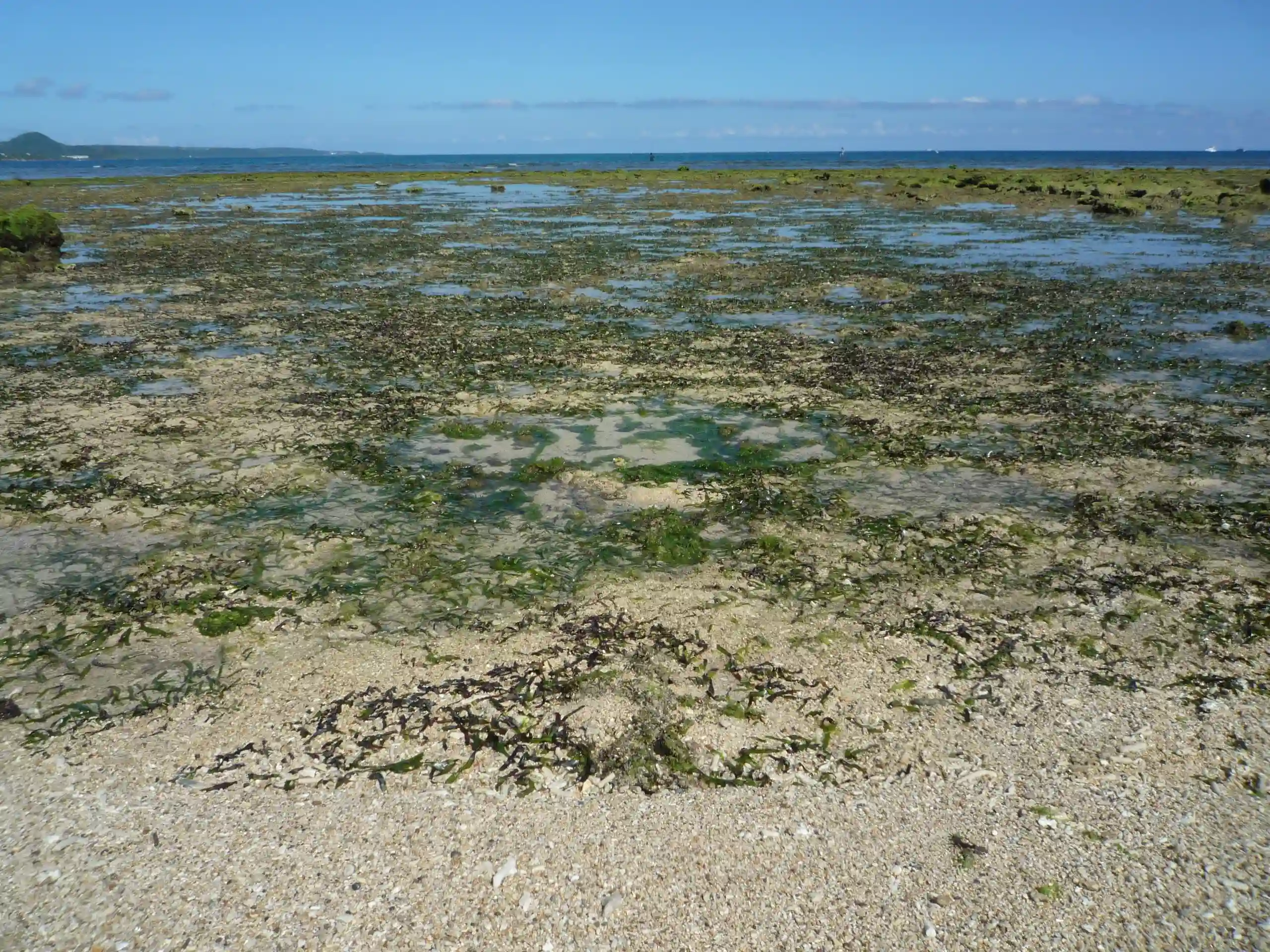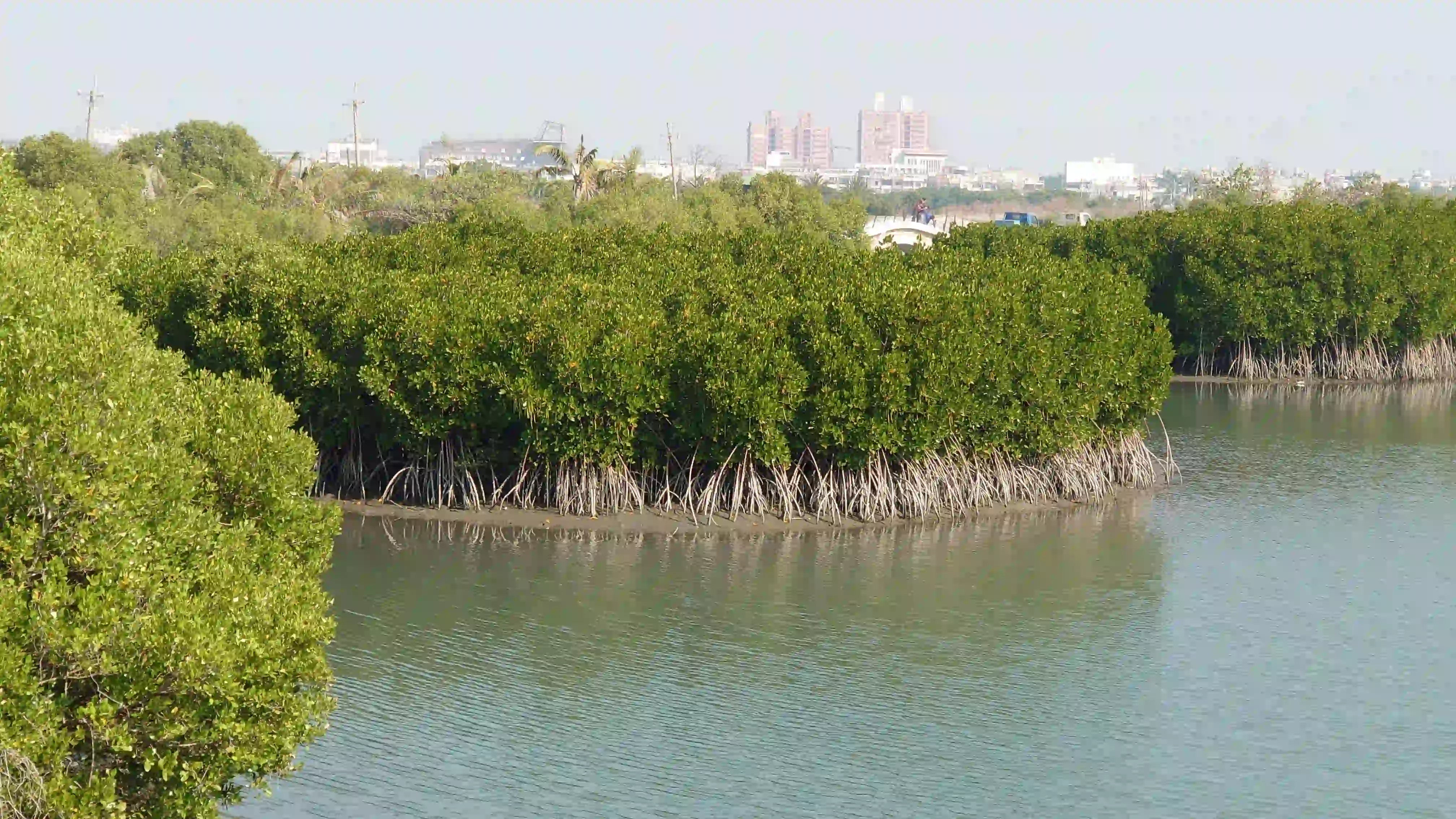Ocean Affairs Council Completes Blue Carbon Methodology Fostering Public-Private Collaboration in Blue Carbon Credit
Ocean Affairs Council Completes Blue Carbon Methodology Fostering Public-Private Collaboration in Blue Carbon Credit

Seagrass meadow in Kenting, Taiwan
(Source: OAC)
"Blue Carbon" plays a crucial role in Taiwan's net-zero strategy as a carbon sink. The Ocean Affairs Council (OAC) has commissioned National Chung Hsing University (NCHU) to revise the "Blue Carbon Methodology" for Taiwan's local mangroves and seagrass bed carbon sinks, submitting it for review by the Environmental Ministry.
The OAC entrusted NCHU to develop measurement standards and GHG reduction methodologies for blue carbon sinks, incorporating previously overlooked blue carbon ecosystems such as mangroves, seagrass beds, and tidal salt marshes.
After consultations with experts and relevant meetings, the revised documents are now ready for submission to the Environmental Ministry, along with the Ministry of Agriculture. Besides the review submission, an intention survey on corporate ocean blue carbon credits has been completed, fostering public-private collaboration to expedite progress toward net-zero goals.
According to the OAC's analysis of the survey results, among enterprises expressing a demand for carbon credits, a remarkable 80% are willing to purchase ocean blue carbon credits, and nearly 50% are willing to buy Taiwan's blue carbon credits at a price higher than the international market average.

The Pen Bay mangrove forest in Pingtung, Taiwan
(Source: OAC)
The OAC's analysis indicates that the primary considerations for companies purchasing ocean blue carbon credits are "permanent stability" and "exchange credibility," ranking first. Factors such as "price" and "ESG added value" come second. Additionally, companies express their willingness to participate in blue carbon development by primarily focusing on "supporting local groups," "adopting habitats," and "engaging in land restoration work."
OAC Minister Bi-ling Kuan mentioned that the construction of carbon sinks in coastal ecosystems contributes to carbon sequestration and creates a biodiverse environment, achieving overall ecological habitat restoration benefits and enhancing the resilience of coastal zones against climate change and natural disasters.
Kuan emphasized that corporate participation in related initiatives brings diverse benefits, promoting mental and physical well-being through proximity to nature, offering the opportunity to obtain carbon credits, and fulfilling social responsibilities. The Ocean Affairs Council and its affiliates will accelerate the promotion of "ocean blue carbon" and collaborate with the private sector to encourage public participation.
